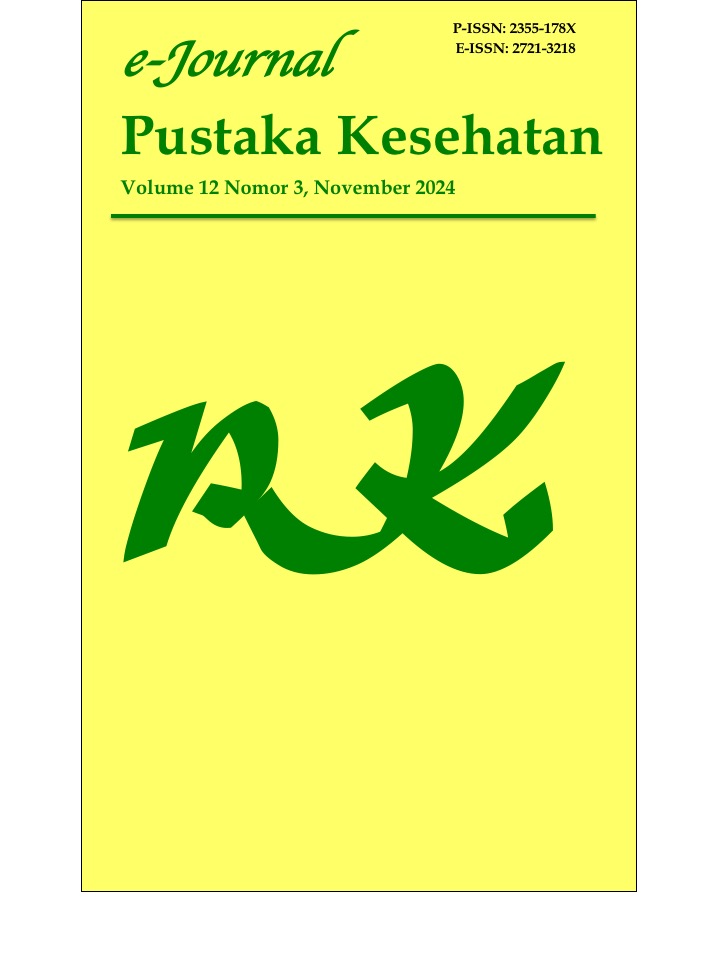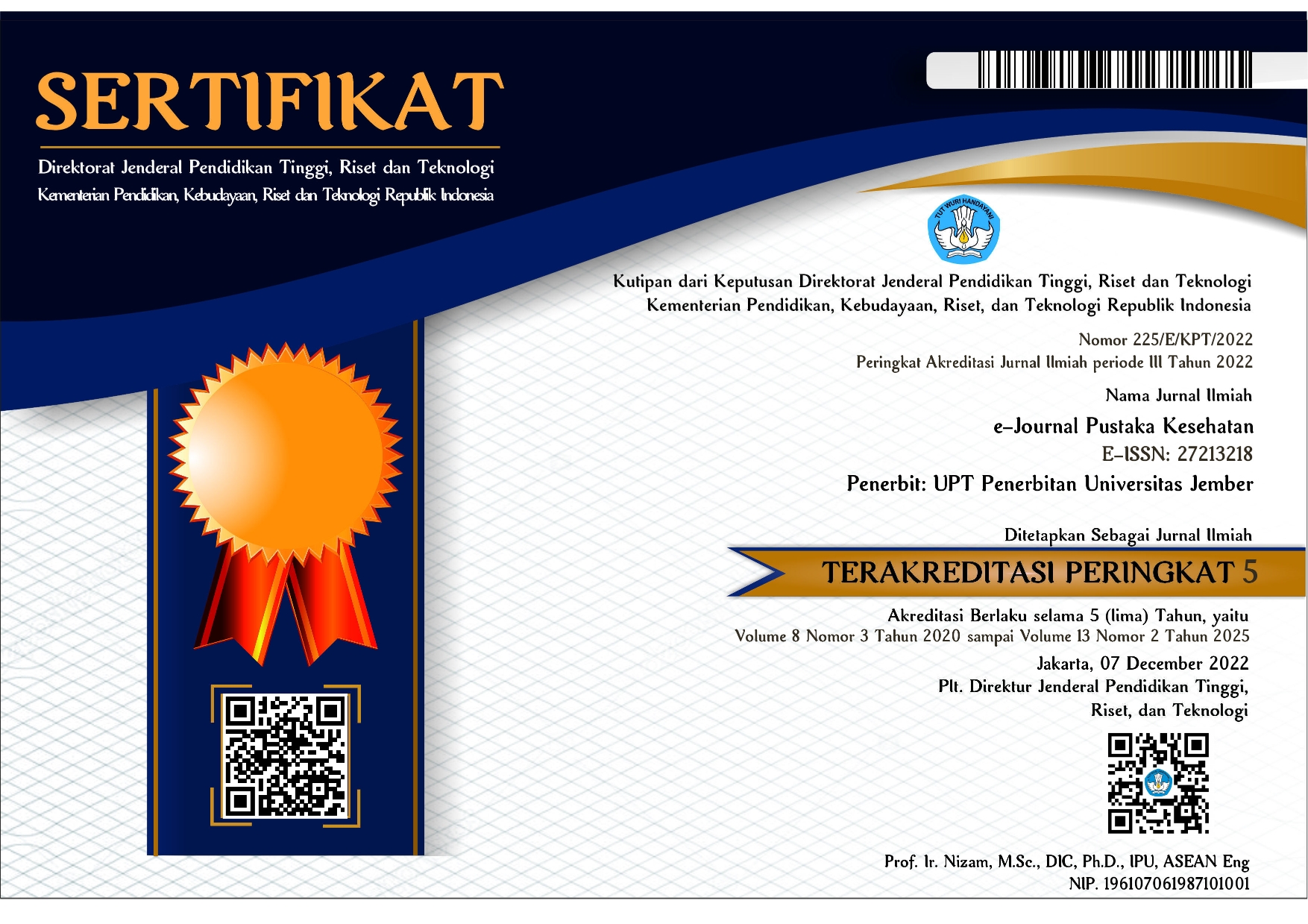Mindfulness-Based Stress Reduction (MBSR) untuk Manajemen Stres pada Konselor Adiksi
Abstract
Working as an addiction counselor involves specific challenges that might increase one's predisposition to suffering from psychopathology. Therefore, it is paramount for counselors to maintain holistic self-care and self-improvement. The mindfulness approach has good efficacy for improving the wellness of the clinical population, but data regarding its use for health workers, including addiction counselors, are limited. Mindfulness-based stress reduction (MBSR) comprises specific exercise procedures usable for stress management and improving counselors' overall well-being. Related to the notion, other than discussing salient challenges faced by addiction counselors, this paper also discusses how a mindfulness-based approach might be applicable among addiction counselors, added with a brief guide for performing the MBSR.
References
2. Wulf R. Stress, burnout, and job dissatisfaction in mental health workers. Eur Arch Psychiatry Clin Neurosci. 2012;65–9.
3. Sayrs J. Mindfulness, Acceptance, and Values-Based Interventions for Addiction Counselors: The Benefit of Practicing What We Preach. In: Acceptance fot Addictive Behaviors. Oakland: New Harbinger Publications, Inc; 2012. p. 187–215.
4. Tartakovsky E, Kovardinsky S. Therapeutic orientations, professional efficacy, and burnout among social workers in Israel. J Subst Abuse Treat. 2013;45:91–8.
5. Shapiro S, Jazaieri H. Mindfulness-Based Stress reduction for Healthy Stressed Adults. In: Handbook of Mindfulness: Theory, Research, and Practice. New York: The Guilford Press; 2015. p. 269–82.
6. Polcin D, Henderson D, Korcha R, Evans K, Wittman F, Trocki K. Perceptions of Sober Living Houses Among Addiction Counselors and Mental Health Therapists: Knowledge, Views and Perceived Barriers. J Psychoactive Drugs. 2012;224–36.
7. Oser C, Biebel E, Pullen E, Harp K. Causes, Consequences, and Prevention of Burnout Among Substance Abuse Treatment Counselors: A Rural Versus Urban Comparison. J Psychoactive Drugs. 2013;45(1):17–27.
8. Vilardaga R, Luoma J, Hayes S, Pistorello J, Levin M, Hildebrandt M, et al. Burnout among the addiction counseling workforce: The differential roles of mindfulness and values-based processes and work-site factors. J Subst Abus Treat Subst Abus Treat. 2011;40:323–35.
9. Landrum B, Knight D, Flynn P. The impact of organizational stress and burnout on client engagement. J Subst Abuse Treat. 2012;42:222–30.
10. Zarbock G, Lynch S, Ammann A, Ringer S. Mindfulness for therapists: understanding mindfulness for professional effectiveness and personal well-being. Sussex: John Wiley & Sons, Ltd; 2015.
11. Roman P, Abraham A. Supervision and counselor emotional exhaustion: The organizational and occupational commitment. J od Subst Abus Treat. 2013;44:528–33.
12. Eblin S. Overworked and overwhelmed: the mindfulness alternative. New Jersey: John Wiley & Sons, Inc; 2014.
13. Shapiro S, Thakur S, de Sousa S. Mindfulnees for Health Care Professionals and Therapist in Training. In: Mindfulness-Based Treatment Approaches. 2nd ed. San Diego: Elsevier; 2014. p. 319–45.
14. Salmon P, Sephton S, Dreeben S. Mindfulness-Based Stress Reduction. In: Acceptance and Mindfulness in Cognitive Behavior Therapy. New Jersey: John Wiley & Sons, Inc; 2011. p. 132–63.
15. Herbert J, Forman E. The Evolution of Cognitive Behavior Therapy: The Rise of Psychological Acceptance and Mindfulness. In: Acceptance and Mindfulness in Cognitive Behavior Therapy. New Jersey: John Wiley & Sons, Inc; 2011. p. 3–25.
16. Shapiro SL, Shapiro DE, Schwartz GER. Stress Management in Medical Education : A Review of the Literature. 2000;
17. Campbell J, Christopher J. Teaching Mindfulness to Create Effective Counselors. J Ment Heal Couns. 2012;34:213–26.
18. Baer R. Introduction to the Core Practices and Exercises. In: Mindfulness-Based Treatment Approaches. San Diego: Elsevier; 2014. p. 7–28.

This work is licensed under a Creative Commons Attribution-ShareAlike 4.0 International License.
e-Journal Pustaka Kesehatan has CC-BY-SA or an equivalent license as the optimal license for the publication, distribution, use, and reuse of scholarly work. Authors who publish with this journal retain copyright and grant the journal right of first publication with the work simultaneously licensed under a Creative Commons Attribution-ShareAlike 4.0 International License that allows others to share the work with an acknowledgment of the work's authorship and initial publication in this journal.











